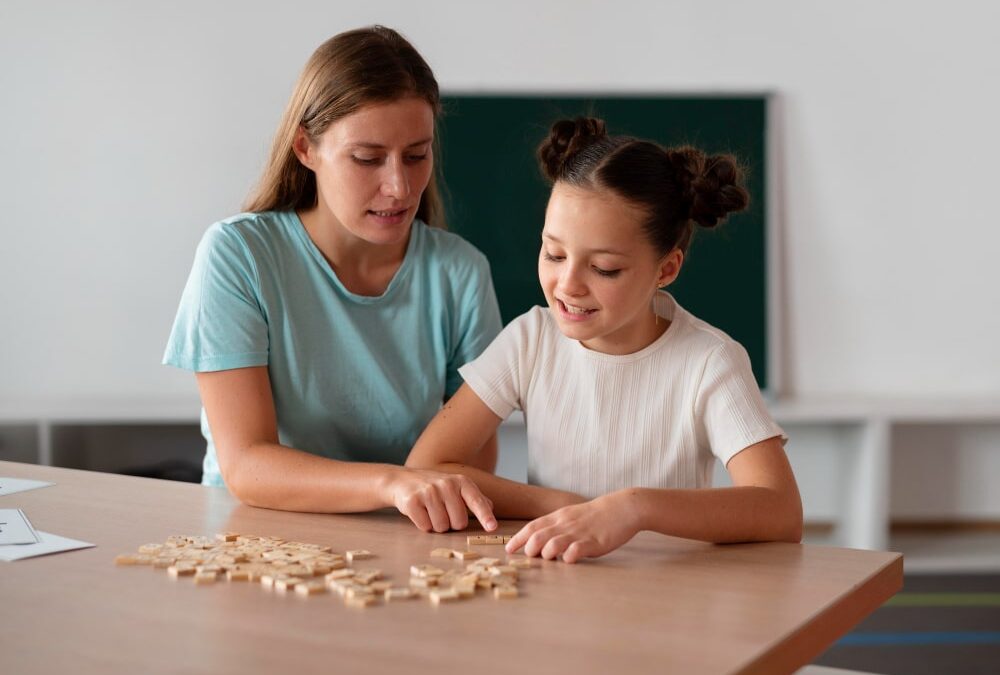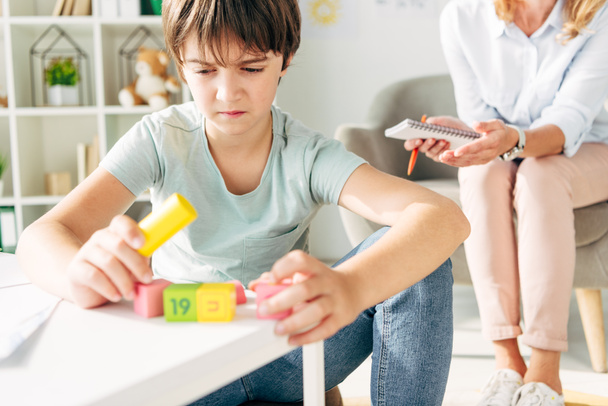Cultivating Habits in Children to Improve Learning

A Psychologist’s View on Dyslexia
September 7, 2023
Do Away With the Gadgets and Send Kids Outside, to Play
September 8, 2023As a parent, cultivating good habits in our children can be quite a task but it also makes our lives relatively easier. For example, if kids have a habit of getting up in the morning and doing their morning routine without constant reminders, which seems annoying to the child. These children are way ahead of others who even in their college years have not mastered these basic daily must-do activities.
As powerful as daily lifestyle habits can be, cultivating good habits around learning is especially impactful for students with dyslexia. Learning habits make the learning environment more efficient which is a winning situation for all – whether kids or parents.
Listed below are some habits which in turn will help in learning.
1) Instil a Habit of Regular Daily Routine –
If you struggle with order and routine, this may be a little difficult. Start with a morning routine that includes making your own bed, some exercise and if possible, having one meal together as a family. Making their bed every morning will give a small sense of pride and encourage children to do the next task andanother and another. If you are not able to do the little things right, you will not be able to do big things right. Establish this early morning routine until it becomes an integral part of your routine. Once this is done, add a morning school routine. In case children have afternoon school, then set up a routine that includes independent work or a quiet reading time. Routines keep everyone’s energy on track. Routines that are done with consistency result in habits. Habits help reduce decision fatigue because of wondering what to do for learning on a particular day. It helps children know what is expected of them throughout the day.
2) Exercise –
It doesn’t have to be strenuous exercise, a simple one like going up and down the steps, just to get the kids moving. Exercise prepares the brain to expand, learn, and change better than any other activity. It also improves mood and motivation, reduces anxiety, regulates emotions and maintains focus.
3) Food and Water –
This doesn’t need much explanation, it is an established fact that when we eat junk food, our brains just don’t work as well as they can. Dehydration can lead to fatigue, dizziness, poor concentration and reduced cognitive abilities, affecting your child’s abilities to learn. It is important that as a parent you assign a bottle to each child and fill it each morning. Provide an abundance of yummy and healthy snacks to make it easier for kids to choose food that nourishes their brains.
4) Encourage a Growth Mindset –
Children with a growth mindset are more engaged and motivated learners. Kids who are praised and acknowledged for their efforts will feel more motivated and successful when they have a positive outcome. They will apply more efforts to whatever it is they are working on – be it sports, playing the guitar or doing math.
The best way to get started with establishing habits is to pick that will have the biggest impact or choose that is easiest to implement, giving the family the much-needed momentum.
As powerful as daily lifestyle habits can be, cultivating good habits around learning is especially impactful for students with dyslexia. Learning habits make the learning environment more efficient which is a winning situation for all – whether kids or parents.
Listed below are some habits which in turn will help in learning.
1) Instil a Habit of Regular Daily Routine –
If you struggle with order and routine, this may be a little difficult. Start with a morning routine that includes making your own bed, some exercise and if possible, having one meal together as a family. Making their bed every morning will give a small sense of pride and encourage children to do the next task andanother and another. If you are not able to do the little things right, you will not be able to do big things right. Establish this early morning routine until it becomes an integral part of your routine. Once this is done, add a morning school routine. In case children have afternoon school, then set up a routine that includes independent work or a quiet reading time. Routines keep everyone’s energy on track. Routines that are done with consistency result in habits. Habits help reduce decision fatigue because of wondering what to do for learning on a particular day. It helps children know what is expected of them throughout the day.
2) Exercise –
It doesn’t have to be strenuous exercise, a simple one like going up and down the steps, just to get the kids moving. Exercise prepares the brain to expand, learn, and change better than any other activity. It also improves mood and motivation, reduces anxiety, regulates emotions and maintains focus.
3) Food and Water –
This doesn’t need much explanation, it is an established fact that when we eat junk food, our brains just don’t work as well as they can. Dehydration can lead to fatigue, dizziness, poor concentration and reduced cognitive abilities, affecting your child’s abilities to learn. It is important that as a parent you assign a bottle to each child and fill it each morning. Provide an abundance of yummy and healthy snacks to make it easier for kids to choose food that nourishes their brains.
4) Encourage a Growth Mindset –
Children with a growth mindset are more engaged and motivated learners. Kids who are praised and acknowledged for their efforts will feel more motivated and successful when they have a positive outcome. They will apply more efforts to whatever it is they are working on – be it sports, playing the guitar or doing math.
The best way to get started with establishing habits is to pick that will have the biggest impact or choose that is easiest to implement, giving the family the much-needed momentum.
Related posts
Contact Alpana Saraf, Special Educator at contact@livingwithdyslexia.in





